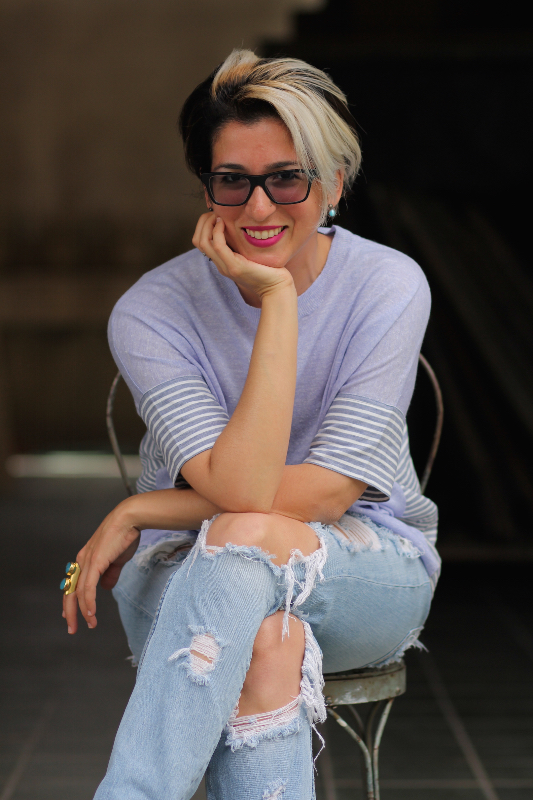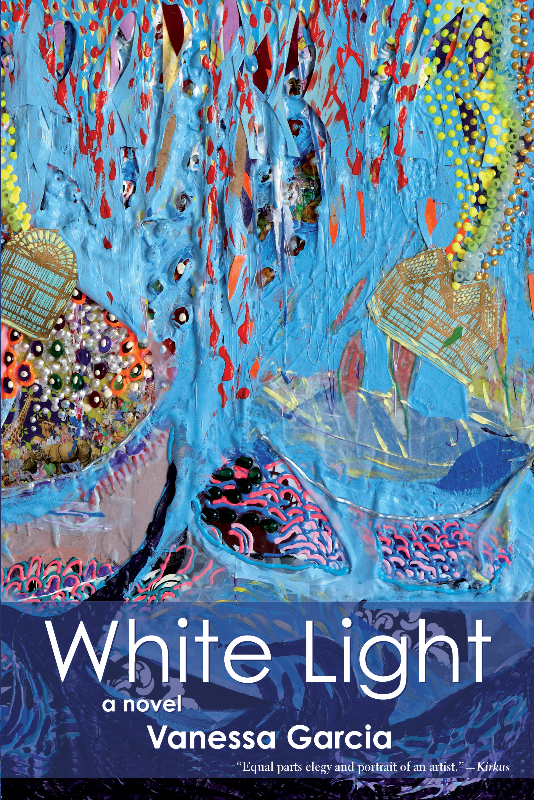
Meet Miami’s newest novelist
This post has been updated with the details on Garcia’s appearance at the book fair in November.
Later this fall, thousands of authors, publishers, agents and book lovers will descend upon Miami Dade College’s Wolfson Campus for the Miami Book Fair International–an annual event during which Knight Foundation supports a variety of programming. Since its inception in 1984, this eight-day literary event has grown into one of the largest book fairs in the world. Scheduled this year for Nov. 15-22, the fair will culminate with the Festival of Authors on Nov. 20-22, when more than 450 writers will read and discuss their work with the public.
This year, the Festival of Authors will feature an increasingly diverse and inclusive cross-section of authors from around the world, including Latin American and Spain. But that’s not all. The book fair has made a conscious effort to include traditionally marginalized voices whose work is often underrepresented, and sometimes outright dismissed, across the publishing world.
Enter Vanessa Garcia, a Miami-based artist, playwright, author and teacher. Her first novel, “White Light,” was just published by Shade Mountain Press, one of the few presses committed to publishing women. Garcia, who will read her work at the Miami Book Fair during the Festival of Authors, discusses her first novel and what it took to get it published.

Vanessa Garcia, a Miami-based author who will be participating in the Miami Book Fair International.
Like many artists, you juggle (for lack of a better word) multiple careers–writer, artist, teacher and executive director of The Krane. Beyond the requisite “how do you do it all” question, I’d like to know how these interrelated careers inform your artistic center? I have never seen my career as “multiple” in the sense that I feel like my life and my work are one. They walk the same line. When I teach, it comes from the same place that I write from, make art from. It comes from the same well source or engine–the thing that drives you to connect. Teaching, in other words, is an act of creation. For me, everything is like that…
What are the challenges you face as a multi-disciplinary artist? I think the major challenge I have faced is something that used to happen more often in the past [and] happens less now: People used to want to peg you as one thing or the other. “Yeah, ok, you write fiction and nonfiction, but what do you prefer?” Or, “You are a writer and painter, but which one are you really?” The answer was always, of course, all of the above. And it’s interesting that way back when you had Renaissance artists that could tackle the visual and literary spheres, [there was] no problem, no contest from society.
Tell us about your first novel, “White Light.” The impetus for my novel, “White Light,” was my father’s death. I started my MFA program the day after my father was declared officially dead (he’d been on breathing tubes in the days prior). When I went into my program at the University of Miami, I thought I was going to be writing a novel based off of someone I knew that was a “cocaine cowboy.” But my father’s death took over, and this book took hold. I woke up every morning at 6 a.m., sometimes 5 a.m., and wrote until 9 a.m. every day. It was my way of understanding and piecing together grief, by pulling it apart. I should also say that, although the impetus came from reality, the book is absolutely fiction. There are fictional situations and characters, it’s totally crafted. I do, however, believe that fiction is often the most true of genres. Your characters can say things in fiction that they can’t in nonfiction.
According to research by VIDA: Women in Literary Arts, “The New York Review of Books” reviewed 354 titles by men in 2014 and only 164 by women–one example of gender disparity that is found across many publications. Do you feel that you face unique circumstances and challenges being a female author working in a field that is heavily dominated by men? I can speak about this for miles and miles, days and months. I wrote my book, “White Light,” between 2007 and 2009, then revised it in 2010. It took the rest of the time to sell the book. Publishers kept telling me my book was “quiet”–which, let’s face it, is a word they reserve for female writers. Good or bad, my book is anything but quiet. I am anything but quiet, and yet publishers insisted on this, on not “hearing” the voice that was set before them because they came at it with a preconceived notion of what they thought it would be. Ironically, it was the publishers that were silencing a voice that was talking to them at full volume. As the reviews have come out now, I am happy to see words like “intense” take the place of “quiet.” It makes me relieved to think that we are going in the right direction.
Just because a narrative doesn’t have a single climax that’s loud and wet and violent doesn’t mean it’s not valid. And yes, I am double entendre-ing there. There’s so much to this conversation that things like the VIDA stats have pointed out–the lack of female reviewers and books being reviewed. It’s astonishing. And I haven’t even touched upon ethnicity, add that to the pile… In the end, I went with a publisher that has been phenomenal–she’s focusing on publishing female literary fiction specifically because of all of the above. Work like the kind she’s doing is really, really important.

The book cover for “White Light” by Vanessa Garcia.
What’s your take on the local literary scene? The literary scene in Miami is more amazing than people know. We’ve had one of the best international book fairs in our backyard for years. We live in a city that houses one of the country’s best independent bookstores, Books & Books, which is not only a bookstore but a salon, a place for conversation and literary exchange. We’ve got O, Miami poetry month in April, we’ve got The Betsy running readings and holding a Writer’s Room, we’ve got the Key West Literary Seminar in January, just a few miles south. We’ve got voices coming out of here like Edwidge Danticat and Jennine Capó Crucet. We’re extremely literary. And what’s great is that we’re literary, and we’re not obnoxious about it.
In what ways do you foresee arts and culture evolving in South Florida? I think we will continue to grow. I think the Knight Foundation has played a huge role in allowing artists to live and work in Miami. The living part is key. It’s hard to make things happen financially in the arts when you are starting out, and foundations like Knight are instrumental. But also, for me, the Miami Dade Cultural Affairs Office is one of the best art incubators and sources of information for artists out there. They are so supportive and amazing. With all of this alive and well in Miami, we’ve got nowhere to go but up.
What’s next for Vanessa Garcia? I’m finishing up a memoir called “My Cuban Routes,” which I hope to also sell in the near future. And I’m also working on a number of plays. One of them is pretty close to production ready, that one is called “Grace, Sponsored by Monteverde.” I’ve got a bunch of other projects in the pipeline. Another fiction project, and another play. There’s always more to say, more to explore.
Vanessa Garcia will read from her new novel, “White Light,” at Miami Book Fair International on Nov. 22 at 11 a.m. in Room 8203 (Building 8, Second Floor). Garcia will also be reading from “White Light” this week on Sept. 24 at Books & Books Coral Gables. Visit the Books & Books website for details.
Recent Content
-
Artsarticle ·
-
Artsarticle ·
-
Artsarticle ·

